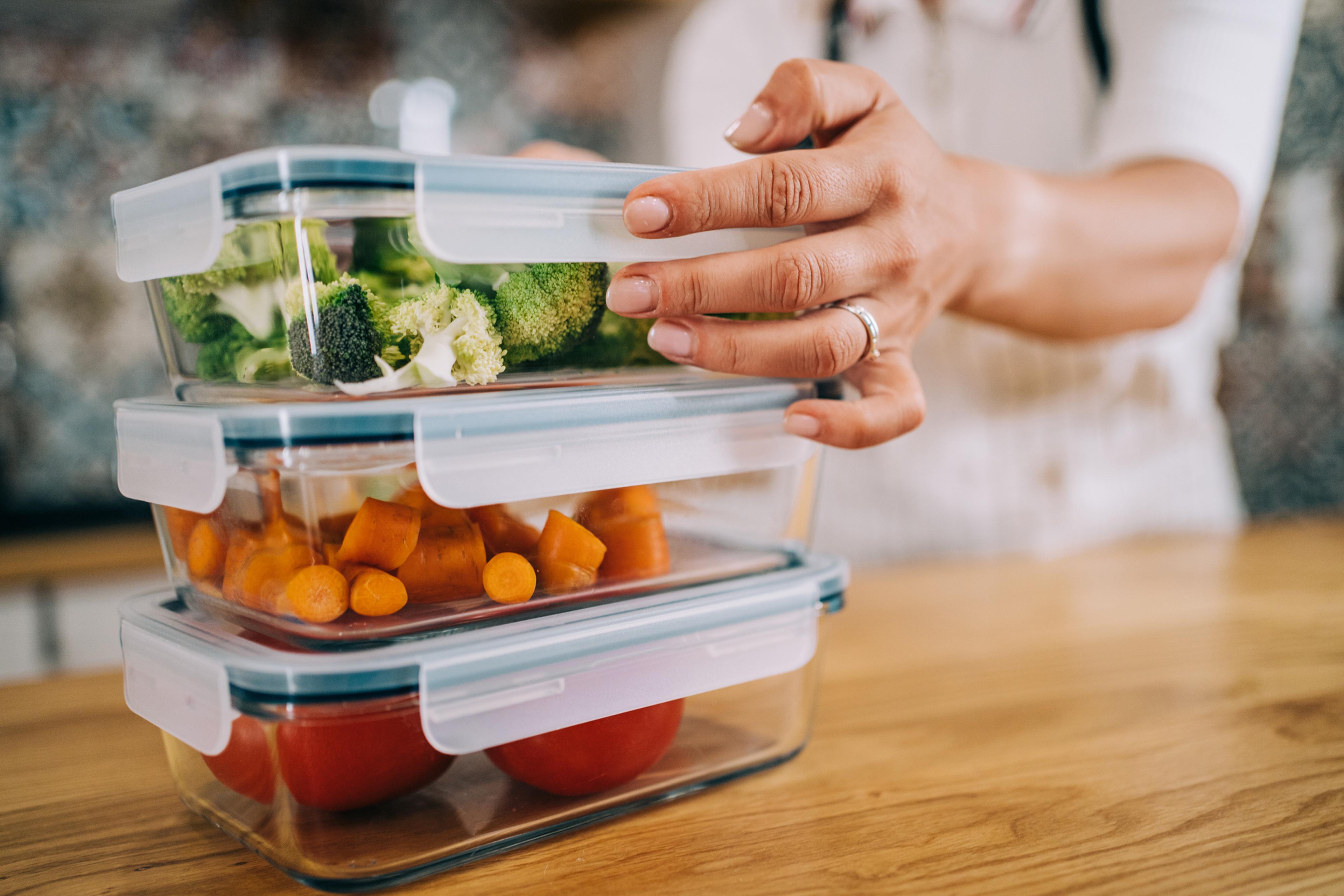Diet Changes to Make to Reduce Your Colorectal Cancer Risk
Amy Barczy
| 3 min read
Amy Barczy is a former brand journalist who authored content at Blue Cross Blue Shield of Michigan. Prior to her time at Blue Cross from 2019-2024, she was a statewide news reporter for MLive.com. She has a decade of storytelling experience in local news media markets including Lansing, Grand Rapids, Holland, Ann Arbor and Port Huron.

What you eat plays a significant role in your risk of developing colorectal cancer during your lifetime. While genetics, family history and chronic conditions also play a role, there are risk factors tied to personal behaviors that you can control, including your diet, physical activity and alcohol and tobacco use.
Some experts believe dietary choices are behind recent trends in new cases of colorectal cancer: while rates are declining among older individuals, rates are increasing among people under the age of 50. One in 23 men and one in 25 women will be diagnosed with colorectal cancer in their lifetimes, according to the American Cancer Society.
Research has found some foods have a specific link to a lower risk of colorectal cancer, including foods high in dietary fiber and calcium; as well as lower amounts of alcohol and red and ultra-processed meat.
More research is still needed on the exact link on the impact of other foods; however, eating fewer highly processed foods and foods lower in added sugars help reduce the risk for excess weight and diabetes – two factors that would also increase your risk for colon cancer.
Talk to your doctor about your diet, and about your risks for colorectal cancer. Colon cancer screenings are now recommended beginning at age 45, though you may be eligible for an earlier screening.
Eat more of these foods
Focus on adding fiber-rich, nutrient dense foods into your diet. Here are some great additions:
Add: Beans and legumes – including soybeans, peas, lentils, offer more than just fiber. They contain protein and vitamins, as well as flavonoids may reduce colorectal cancer risk.
Add: Vegetables like broccoli, lettuce, carrots, celery, spinach, cucumbers, artichokes, cauliflower, kale and cabbage should make up a generous part of your plate. They are rich in fiber, minerals and nutrients.
Add: Fruit. Many fruits have natural nutrients and chemicals that may fight inflammation in the body and add fiber to your diet.
Add: Whole grains. Think whole oats, brown rice and whole-grain wheat bread; as well as quinoa. These grains are high in magnesium and fiber. Fiber-rich foods can help keep stools moving, which help clean the colon.
Add: Lean meat – including skinless chicken and turkey.
Add: Nuts, which contain healthy fatty acids and fiber.
Add: Fish. Fish including salmon, tuna and sardines have omega-3 fatty acids that are great for your overall health, as well as vitamin D and calcium.
Eat less of these foods
Foods low in nutrients and fiber, and those high in certain animal fats, can cause weight gain that could lead to obesity and type 2 diabetes – putting you at risk for colorectal cancer.
Less: Red meat, including beef and lamb. While you don’t have to say goodbye to red meat forever, research suggests that limiting the amount and frequency of eating red meat is linked to a reduced risk of colon cancer.
Less: Ultra-processed meat. This includes hot dogs, packaged luncheon meats, bacon and bologna. Recent studies have found that these highly processed, preserved meat products can not only increase your risk of colon cancer, but stomach cancer as well.
Less: Highly processed foods and refined grain products, like white bread and baked goods.
Less: Sugar-sweetened drinks, including pop, sweet tea, energy drinks and coffee drinks with added sugars.
Less: Alcohol. Two to three glasses of alcohol a day can increase your risk of colon cancer, as well as put you at risk for other chronic conditions.
Blue Cross Blue Shield of Michigan and Blue Care Network cover colorectal screenings for most members beginning at age 45 to align with the recommendation of the U.S. Preventive Services Task Force. For more information, click here.
Photo credit: Getty Images





